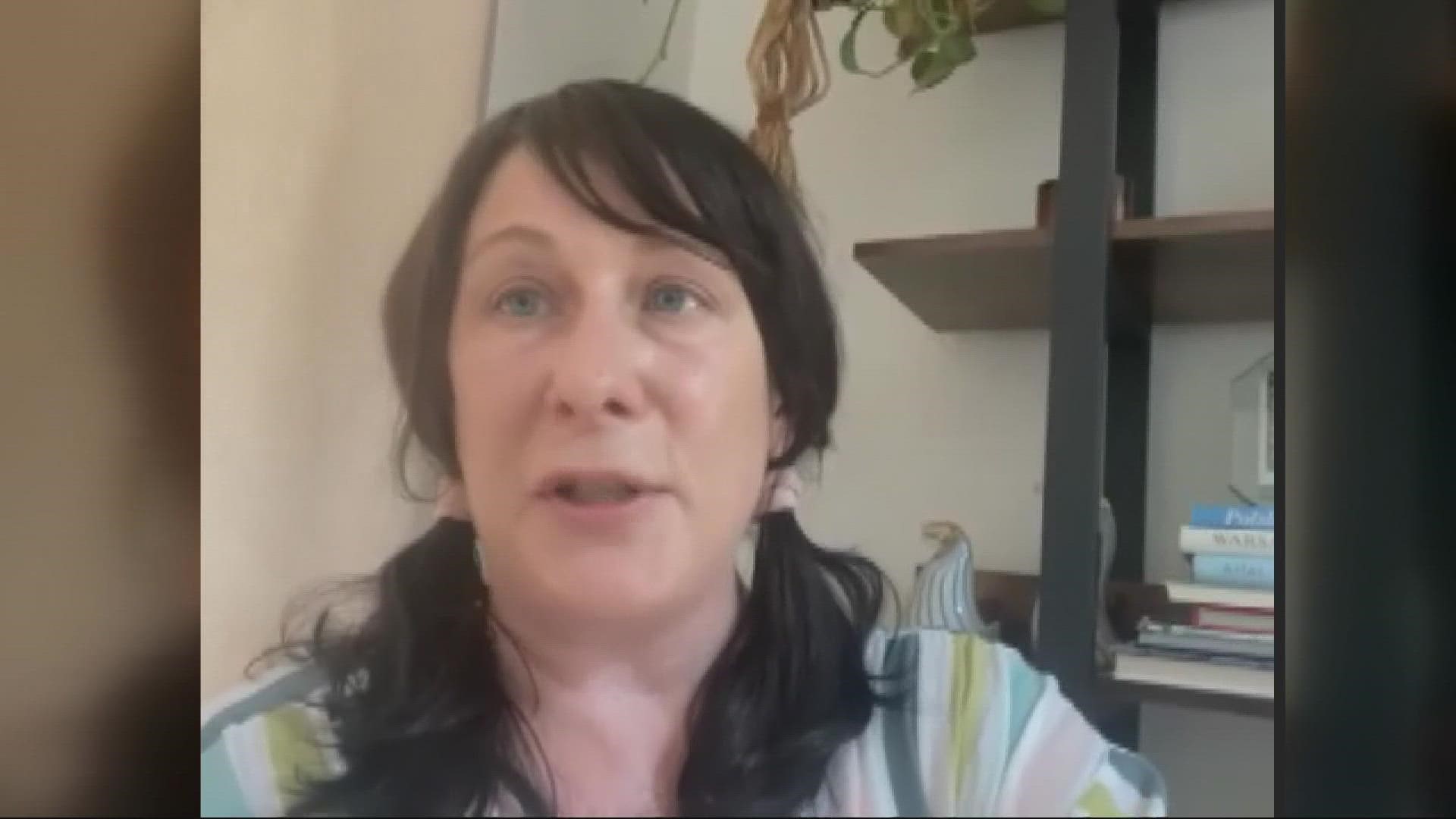PORTLAND, Ore. — New research shows around one third of COVID-19 survivors deal with symptoms months after getting the virus. The condition is known as long COVID.
Some Oregonians with long COVID, or "long-haulers", are pleading with people to protect themselves so the virus doesn't wreak the same havoc on their lives.
KGW first spoke with Donna Parzych after she got COVID this past spring. Nearly half a year later she's still dealing with symptoms.
"You don't want this," Parzych said. "The symptoms are extremely scary ... I still am having debilitating side effects."
She struggles to breathe, has nerve damage in her hand and frequently feels wiped out.
"I might have a couple good days but then I'm down for a bit," Parzych said. "It's just really hard on a daily basis to go back to living how I used to."
Since long COVID changed her life, Parzych says she misses seeing friends and family, hosting dinner parties, walking her dog and doing simple things like gardening and yard work.
"It's hugely depressing," she said. "I just want to feel better."
Beth Belnap, a single mom of three, got COVID-19 for the second time in November 2020. She hasn't bounced back since and says she feels "defeated" on a daily basis.
She's now one of thousands of Oregonians who's become a long-hauler.
"I can't be the mom that I want to be. I have to be very careful with what I do," Belnap said. "I'm over that short-term part where you feel like you're gonna die. But my whole world has changed and I don't know when or if I'm gonna get that back."
Belnap and Parzych don't want anyone else to suffer like they are. But they know more people will, as Oregon's coronavirus cases and hospitalizations climb to record highs and vaccination rates stall out.
"I wouldn't wish this on my worst enemy," Belnap said. "It scares me what is going to happen to them."
Parzych says she contacted KGW again all these months later to get her story out there, and hopefully change skeptics' minds about the vaccine.
"It's just such a sad shame that these vaccines are out there so easily accessible and people are still choosing to be put on ventilators," Parzych said. "It frustrates me that there's people holding us back to move forward."
The best way to protect yourself and those around you from this virus is by getting vaccinated.
As of Friday, Oregon Health Authority data showed 70.2 percent of Oregonians over 18 have at least one shot. That means hundreds of thousands in the state still aren't protected.
Nervous about the vaccines at first, both Parzych and Belnap got theirs, and strongly urge others to do the same.
"It's the only way out. That's how we got out of smallpox, measles," Belnap said. "If you haven't been vaccinated yet you need to get vaccinated."

